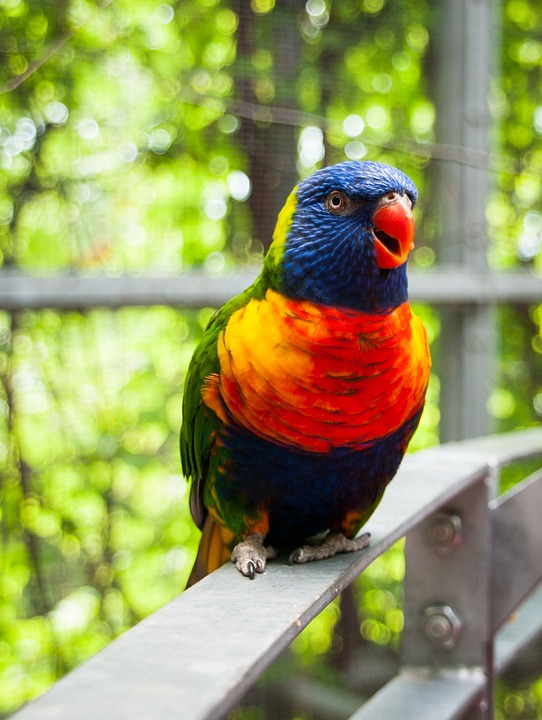Parrots are known for their intelligence and sociability, making them popular pets for bird enthusiasts. However, just like any other living being, parrots can fall ill. As a responsible parrot owner, it is crucial to be able to identify signs of illness in your feathered friend. This comprehensive guide will help you understand common indicators of a sick parrot and provide valuable insights on how to address these issues promptly.
Lethargy and loss of appetite are common signs of illness in parrots. If your usually active and energetic parrot becomes lethargic and shows a lack of interest in food, it could be a sign of an underlying health issue. Changes in vocalization and vocal quality can also indicate illness. If your parrot’s vocalizations become unusually quiet or harsh, it may be a sign that something is wrong.
Feather plucking and changes in feather appearance are another important sign to watch out for. Parrots may pluck their feathers due to stress or illness. If you notice bald patches or changes in the texture or color of your parrot’s feathers, it is essential to investigate further.
Weight loss or gain can be indicative of an underlying health issue. Monitoring your parrot’s weight regularly and noting any significant changes can help you detect potential problems. Changes in droppings, such as a change in color, consistency, or frequency, can also be a sign of illness.
Pay attention to your parrot’s sleep patterns. Any significant increase or decrease in sleep can be a cause for concern. Parrots are usually active during the day and sleep at night. If your parrot starts sleeping excessively or exhibits insomnia, it may be an indication of illness.
Behavioral changes and abnormalities are also important signs to look out for. Aggression or unusual territorial behavior can be a sign that your parrot is not feeling well. Loss of interest in social interactions, excessive screaming, or sudden silence can also be red flags. Changes in playfulness or a lack thereof can indicate a decline in your parrot’s overall well-being. Self-mutilation or excessive feather chewing can be signs of stress or illness.
Physical symptoms and abnormalities should not be ignored. Swollen or discolored eyes can be a sign of infection or injury. Difficulty breathing, wheezing, or any abnormal sounds during respiration should be addressed promptly. Sores or lesions on the skin or feet can indicate an underlying health issue. Abnormal beak growth or overgrown nails can cause discomfort and affect your parrot’s ability to eat and perch correctly. Inability to fly or abnormal wing positioning can also be signs of illness.
Respiratory issues are common in parrots and should be taken seriously. Sneezing, coughing, or nasal discharge can be signs of respiratory distress. Labored breathing, open-mouth breathing, tail bobbing, or gurgling sounds during respiration should be addressed immediately. Fluffed feathers or difficulty perching can also be signs of respiratory problems.
Digestive issues can manifest in changes in appetite or thirst. Vomiting or regurgitation can indicate a problem with the digestive system. Diarrhea or abnormal droppings can be signs of infection or an underlying health issue. Abdominal distention or bloating should not be ignored.
In the FAQs section, common concerns related to parrot health are addressed. It is important to note that parrots can hide signs of illness, so regular veterinary check-ups are crucial. Preventive measures such as maintaining a clean and safe environment, providing a balanced diet, and minimizing stress can help ensure your parrot’s good health. If your parrot shows signs of illness, consult a qualified avian veterinarian for an accurate diagnosis and appropriate treatment. Over-the-counter medications should not be administered without professional guidance.
To prevent respiratory issues, ensure proper ventilation in your parrot’s living area and avoid exposing them to smoke or strong odors. A healthy diet consisting of high-quality pellets, fresh fruits, vegetables, and limited treats is recommended for a parrot’s good health.
In conclusion, being attentive to your parrot’s behavior, physical appearance, and overall well-being is crucial for detecting and addressing potential health issues. Regular veterinary check-ups and establishing a good rapport with an avian veterinarian are essential. If you have any concerns about your parrot’s health, always consult a qualified avian veterinarian for accurate diagnosis and appropriate treatment. By being proactive, you can ensure a long, happy life for your beloved feathered friend.









